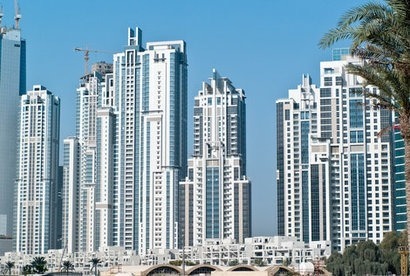
Investment in public and low emission transport, building efficiency and waste management in cities could also reduce greenhouse gas emissions by 3.7 Gigatons CO2e (CO2 equivalent) per year by 2030, more than the current annual emissions of India. Complementary national policies, such as support for low-carbon innovation, reduced fossil fuel subsidies and carbon pricing, could enlarge the savings generation to $22 trillion.
“The steps that cities take to shrink their carbon footprints also reduce their energy costs, improve public health, and help them attract new residents and businesses” said Michael R. Bloomberg, UN Secretary-General’s Special Envoy for Cities and Climate Change. “This report can help accelerate the progress cities are making in all of these areas, by highlighting smart policies and encouraging cooperation through efforts like the Compact of Mayors.”
The report recommends that cities commit to low-carbon urban development strategies by 2020 and also to the Compact of Mayors, a global coalition of mayors and city officials pledging to reduce local greenhouse gas emissions, enhance resilience to climate change, and track their progress transparently. More than 130 cities have already joined the Compact of Mayors and will be setting ambitious emissions reduction targets and reporting their progress publicly.
Eduardo Paes, Mayor of Rio de Janeiro and Chair of C40 Cities, added that better, more resilient models of urban development are particularly critical for rapidly urbanising cities in the developing world.
“Cities around the world are already leading the way in implementing sustainable and innovative urban solutions” Mr Paes said. “By sharing and scaling-up these best practices through international collaboration, cities can save money and accelerate global climate action.”
Two examples of measures taken by cities around the world are the Rea Vaya Bus Rapid Transit and the highly competitive R1.5bn green bond in Johannesburg, South Africa. According to Parks Tau, Johannesburg City Mayor, both demonstrate a commitment to economic growth and investment rooted in resilient, sustainable urban development. Creative policies and innovative financing can both help cities to overcome barriers to action, says the report. For every $1 invested in improving the creditworthiness of cities, more than $100 can be leveraged through private finance for low-carbon infrastructure. Every $1 million invested in project preparation could yield $20 million to $50 million in capital support for successful projects. The economic returns generated by the Johannesburg Bus Rapid Transit system in its first phase approached $900 million.
In Singapore, the city’s “Green Mark” programme, which aims to cover 80 percent of its buildings by 2030, could see a reduction in building electricity consumption of 22 percent while generating net economic savings of over $400 million.
Copenhagen’s planned Cycle Super Highways generate an estimated internal rate of return on investment of 19 percent per year.
According to Nick Godfrey, Head of Policy and Urban Development at the New Climate Economy and an author of the report, $17 trillion in savings is actually a very conservative estimate, because it only looks at direct energy savings generated from investment, which are a small proportion of the wider social, economic, and environmental benefits of these investments.
The report also recommends that the international community should develop an integrated package of $1 billion or more over five years to help accelerate and scale up low-carbon urban strategies in at least 500 cities worldwide.
The New Climate Economy is the flagship project of the Global Commission on the Economy and Climate. It was established by seven countries: Colombia, Ethiopia, Indonesia, Norway, South Korea, Sweden and the United Kingdom, as an independent initiative to examine how countries can achieve economic growth while dealing with the risks posed by climate change.
For additional information:
The Accelerating Low-Carbon Development in the World’s Cities report can be found here

